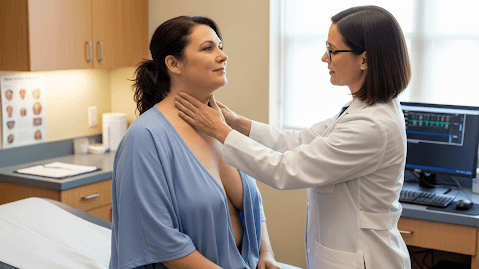
Unlocking the Mystery: Blood Clots and Heart Disease
As women, our health is profoundly connected to our heart, yet many of us are unaware of a startling truth: blood clots may indeed be the root cause of various heart diseases. Traditional beliefs often point towards high cholesterol or high blood pressure as the main culprits. However, emerging research suggests that hidden within our veins might be the key to understanding heart health—blood clots.
Connecting Women’s Health to Blood Clots
This topic resonates deeply for women, as heart disease often goes undiagnosed or misdiagnosed due to it manifesting differently than in men. According to studies, blood clots form when the blood thickens and clumps together, leading to potential blockages in blood vessels. These clots can travel to the heart or brain, resulting in serious issues like heart attacks or strokes.
The Power of Vitamin D
While we explore this critical connection, it’s also vital to recognize the role of nutrients in supporting heart health. For instance, Vitamin D has been shown to positively influence cardiovascular function, potentially lowering the risks associated with heart disease. Many women are deficient in Vitamin D, especially in colder climates; thus, ensuring adequate levels could serve as a protective measure.
Real Stories, Real Impact
Meet Sarah, a 45-year-old mother of two who was oblivious to the silent threats of blood clots until a sudden health scare. After collapsing at home, she learned through doctors that she had developed clots that could have led to devastating consequences. Sarah’s journey emphasizes the importance of awareness and education about heart health, especially in women. Her experience encourages us to prioritize routine check-ups and advocate for our health.
Understanding the Risks and Symptoms
Being aware of the symptoms of blood clots is crucial for prevention. These can include swelling in one leg, pain or tenderness, and redness of the skin. Women should not overlook these signs, often attributing them to fatigue or stress. Recognizing these indicators can lead to timely interventions and save lives.
Future Predictions: More Awareness and Research
Looking ahead, as research continues to evolve, the medical community is expected to focus more on understanding how blood clots relate not only to heart health but also to various illnesses like cancer. There’s growing evidence that cancer and blood clots share common pathways, and addressing clot formation could provide new avenues of treatment and prevention.
Empowerment Through Knowledge
Every woman should prioritize her heart health not just for herself, but for her loved ones as well. Engaging with healthcare professionals to discuss risks, lifestyle choices, and regular screenings forms the backbone of making informed decisions about our health.
It’s vital that we stay informed about blood clots and how they may contribute to heart disease, alongside understanding our individual health risks. Make these conversations a routine part of your health discussions with your family and medical practitioners.
Your Next Steps for Better Health
To take charge of your health, start by scheduling regular health screenings, monitoring your symptoms, and discussing heart health openly with your doctor. Don't hesitate to advocate for yourself—knowing your body can lead to better outcomes.
Let us take this knowledge and empower ourselves to understand heart health better, making informed decisions for our well-being and that of our families. Remember, every small step in awareness can lead to significant changes.
If you want to learn more about maintaining your health and well-being, stay connected with resources that promote women's health and take proactive measures today!
 Add Row
Add Row  Add
Add 




Write A Comment